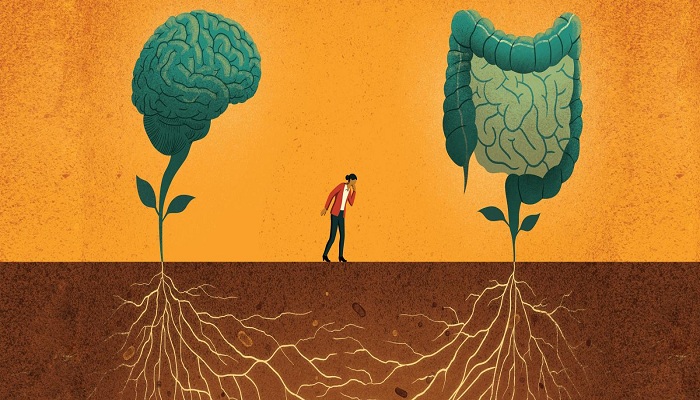SECOND BRAIN

SECOND BRAIN
Published On: 14-09-2024 | 3 min Read
That second brain is found in your gut. Confused yet? Beyond digestion, your gut contains an extensive network of brain-like neurons and an elaborate microbiome that can determine your mental state and risk for neurological conditions.
Our gut is referred to as the ‘second brain’.
But Why GUT?
Because it is lined with nerves and has the same types of neurons and neurotransmitters as our brain. As a result, our gut controls the digestive process, manages the absorption of nutrients, and tells our brain what is going on across our body and what our body needs. Our enteric nervous system is the neural network that operates within your gastrointestinal (GI) tract and controls its digestive functions. With more than 500 million neurons, it’s the most complex neural network outside of your brain.
It is home to 100 trillion microorganisms and their genetic material, known as microbiome, and scientists are only just unlocking the potential of this live bacteria.
What is the gut-brain connection?
The gut and the brain are intrinsically connected. They communicate in both directions all the time through 'the vagusnerve' .
The vagus nerve as a telephone wire between the two.
However, our gut and brain also communicate through our hormones, which are like a wireless signal, through 'neurotransmitters' throughout our body.
Normally, when we see something tasty, the brain signals the gut to prepare for incoming food. When we feel anxious or stressed, we might experience these as abdominal pain, diarrhea, nausea. Messages travel from gut to brain, too.
What is the link between mood and our gut?
There is a lot of supporting how gut health is connected to mood, with the gut-brain axis. Scientists have identified how our gut makes about 90% of our serotonin and how the billions of nerve cells that line the gut.Gut don’t just help us to digest our food but also guide our emotions.
Serotonin is a neurotransmitter released by our brain that makes us happy, sleep better, modulate pain perception. Scientists have demonstrate how an imbalance of serotonin and other neurotransmitters can remarkably impact on mood, sleep and social behaviours.
Scientists are finding the role our gut microbiome plays in mood & social behaviour. They believe that our gut microbiota determie brain function via the neuroendocrine signalling pathways, as well as the nervous system. That primary findings show marked changes to microbial diversity with people with mood disorders and believe that with more findings, the brain-gut microbiotia axis could be a remakable aim for disease diagnosis and therapeutic intervention.
